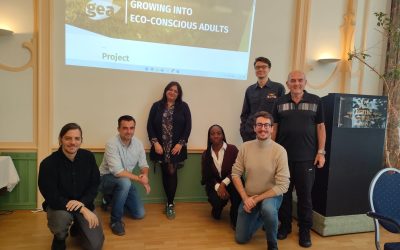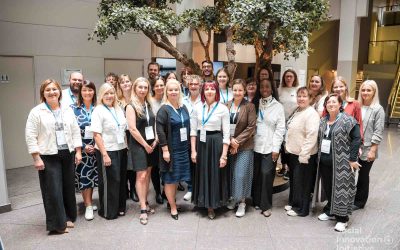 SMART – Second Chance Schools working with systematic measurement of outcomes is a two-year project co-funded by the Erasmus+ Programme, Key Action 2 Strategic Partnership for Adult Education. The project aims to develop a quality framework, for use by providers of second chance education that will address the gaps, in order to help them evidence their success factors, enhancing the quality and relevance of learning offers in education, training and youth work. The project involves 7 partners from Denmark, Ireland, Belgium, Italy and the Netherlands, representing University, Second chance schools, regional authorities and civil society organisations, who are cooperating in order to create a quality measurement system for second chance education and providers of non-formal and informal learning.
SMART – Second Chance Schools working with systematic measurement of outcomes is a two-year project co-funded by the Erasmus+ Programme, Key Action 2 Strategic Partnership for Adult Education. The project aims to develop a quality framework, for use by providers of second chance education that will address the gaps, in order to help them evidence their success factors, enhancing the quality and relevance of learning offers in education, training and youth work. The project involves 7 partners from Denmark, Ireland, Belgium, Italy and the Netherlands, representing University, Second chance schools, regional authorities and civil society organisations, who are cooperating in order to create a quality measurement system for second chance education and providers of non-formal and informal learning.
The 4th partner meeting of the SMART project took place in Heerlen, Netherlands, from 1st to 3rd of February 2016. The meeting was a chance for partners to discuss about the work done so far, and especially the completion of the need analysis, and to plan the next steps of the project until July 2016. Great attention during the meeting was given to the development of the Training Module and Handbook for Teachers, which will be used to organize two training events (in Limerick, Ireland and in Palermo, Italy) in April 2016. In addition to this, the partners discussed about the systematic measurement system and the design of the e-platform, agreeing on a distribution of roles and tasks and on a timetable for the testing and piloting phase.
On February 3rd,, the 4th Multiplier event of the SMART meeting took place in Heerlen, Netherlands. The event, hosted by Euricon, closed the 4th partner meeting and it involved the project partners as well as 5 external participants from Germany and the Netherlands who are active in the field of education. The theme of the event was how to develop a self-evaluation culture both on teacher/ trainer level and at organizational level, and how self-monitoring and self-evaluation can drive forward improvements in teaching and learning, which in turn can lead to the reduction of early school leaving.
An introduction to the topic was given by Mr. Jacques Jansen, who played a key role in building a common European concept of second chance education in 1999/2000. Following, the project coordinator gave an overview of the project and results so far. Partners of the project presented the results of a literature review and a teacher training need analysis as well as a case study from Denmark on the development and use of a systematic measurement system. Finally, the participants were given an introduction to the E-platform that will be one of the main results of the project. The online platform will enable schools to measure the development of learners and the performance of schools and to evidence success factors in second chance education. The platform will be tested and finalised this spring. The presentations given led to fruitful reflections from the external participants, based on the experiences from both second chance education and other sectors.
The next and final multiplier event of the project will be held in Copenhagen on 31st of May 2016.
For further information, please, visit project website: www.edu-smart.eu, like us on Facebook or write to: francesca.vacanti@cesie.org
![]() The European Commission support for the production of this publication does not constitute an endorsement of the contents which reflects the views only of the authors, and the Commission cannot be held responsible for any use which may be made of the information contained therein.
The European Commission support for the production of this publication does not constitute an endorsement of the contents which reflects the views only of the authors, and the Commission cannot be held responsible for any use which may be made of the information contained therein.









